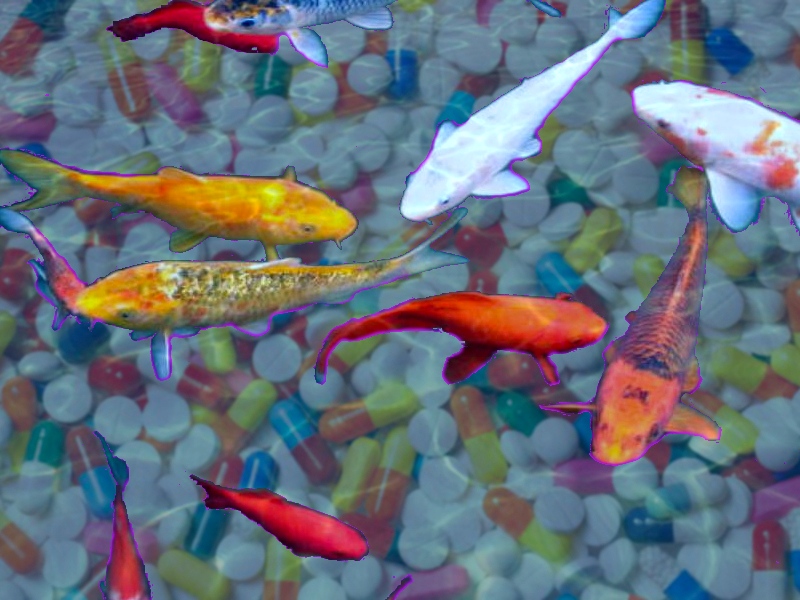|
By Uma Chandrasekaran
Long gone are the days of saying that an “apple a day keeps the doctor away”. Modern day science has transformed our lives. They have made us believe, “pill a day keeps the disease at bay”. Not just drugs, but our day-to-day existence is unimaginable without a myriad of personal care products (PPCPs) like antibacterials, antiperspirants and sunscreen. Turns out, these pharmaceutical drugs and personal care products, in addition to adorning our household cabinets, also spill out into our waterways. Their journey does not end there. This uncanny mixture of assorted chemicals finds its way to our rivers only to turn them into a “chemical soup.” According to a recent study [1], a total of 93 pharmaceuticals (concentration range:0.35-15,000 ng/L) ranging from caffeine to prescription drugs (antibiotics, anti-depressants and contraceptives) to disinfectants contaminate the surface waters of the USA.
Editor's note: This article placed first in our inaugural Scientista DiscovHER science writing competition. Scientista would like to congratulate Amy Chan on her achievement and welcome her to our team of regular bloggers!
By Amy Chan
Paleo? Atkins? FODMAP diet? If those don’t take your fancy – then how about the Werewolf diet? Weight loss and diets seem to plague us no matter where we look. Google ads, Facebook pop ups, Twitter feeds – the topic of food and weight is never far from our lips…or perhaps our hips for that matter. Obesity struggle is a real and global one. The World Health Organisation reports a doubling in worldwide obesity since 1980, with 50% of people in the WHO European region overweight and another 23% of women and 20% of men obese. Recent research suggests that obesity may be deadlier than previously thought – with 18% of all deaths in the US accounted for by obesity (1). But the good news is, new fad diets seem to appear as fast as the obesity epidemic grows, infesting our social networks each time we refresh our feeds – and they’re all just a click away. And indeed, it is tempting. With the abundance of food around us 24/7, and the ever-growing fast food industry, it is easy to look for a simple solution to a weighty problem. How great would it be to eat anything you wanted, anything at all, without having to worry about the extra pounds that might pile on. This calls for new measures beyond fad diets. Perhaps science is the answer. If science informs all our other choices – from car design to human relationships – then maybe we can apply science to food too? |
Archives
February 2023
DiscovHER BlogScientista DiscovHER is a blog dedicated to discovHERies made by women in science. Follow us for links to the latest resHERch! Categories
All Alexandra Brumberg Amy Chan Avneet Soin Chemistry Diana Crow Engineering Health/medicine Indulekha Karunakaran Iqra Naveed Johanna Weker Lidiya Angelova Michael Clausen Mind Brain And Behavior Muhammad Hamza Waseem Nikarika Vattikonda Opinion Prishita Maheshwari-Aplin Technology Uma Chandrasekaran |
The Network for Pre-Professional Women in Science and Engineering
The Scientista Foundation is a registered 501(c)(3) -- Donate!




 RSS Feed
RSS Feed